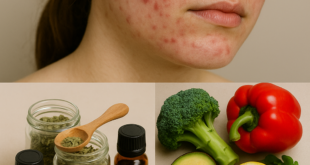
Allergies don’t only affect humans; our beloved feline companions may experience allergic reactions too. Understanding their signs could prove vitally helpful; let’s dive in! Let’s find out everything there is to know.
ALLERGIC REACTIONS
Mes Before exploring symptoms, it is vitally important to identify potential triggers of allergic reactions in our canines. A dog could potentially be allergic to:
- Environmental allergens such as pollen, mold spores and dust mites may trigger allergy attacks in some individuals.
- Food ingredients including chicken, beef or dairy may include ingredients like chicken breast meat.
- Fleas and insect bites Medication/vaccines or household chemical/grooming product.
Pro tip: Always monitor your pup after introducing any new food or product to him/her.
Allergic reactions may manifest themselves with itchy skin, red eyes, hives, vomiting, swelling, sneezing, scratching coughing licking diarrhea wheezing shaking restlessness restlessness paw biting ear infections lethargy facial swelling breathing difficulties among other signs in their dogs.
COMMON ALLERGIC SYMPTOMS
A) Skin Problems Itchiness or excessive scratching or licking. B) Rash, Hives or Redness
C) Hot Spots/Scabs
D) And Hair Loss in Patches
These symptoms, which often start gradually but worsen quickly without treatment.
1.Digestive Issues
Vomiting, diarrhea or loss of appetite should immediately raise red flags regarding digestive troubles; gas or bloating symptoms after trying something new are especially worrisome signs for digestion.
2.Respiratory Symptoms, Sneezing, Coughing or Wheezing.
Are Your Dog’s Noses Running Or Are Their Eyes Swollen Is Your Pup Struggling with Breathing Or does their face or throat appear puffy, visit a veterinarian immediately.
WHAT SHOULD BE DONE
Step One: Stay Calm yet Act Quickly
Don’t panic but act swiftly either; mild symptoms might be manageable while swelling, vomiting and breathing issues warrant visiting a vet immediately.
Step Two: Remove Allergen (If Known)
Stop any exposure to foods, grooming products or chemicals immediately.
Step Three: Consult Your Vet
Even for minor ailments, seeing a specialist is often better than trying to figure it out by yourself or googling online.
Prevent Future Reactions
- Utilize flea prevention regularly.
- If your pup exhibits food sensitivities, consider providing him or her with a limited ingredient diet.
- Make your home safe for dogs–no harsh cleaning agents or toxic plants are allowed!
- Schedule regular veterinarian check-ups
- Prevention is always easier than cure–and your pet will appreciate your efforts!
FINAL THOUGHTS
Although dogs cannot speak out directly with words, their bodies speak volumes! Listen closely, take immediate action when necessary and trust your instincts at all times.
By knowing what signs to look out for, it becomes much easier not only to detect allergic reactions quickly and immediately but to stop them in their tracks.
 healthybodyboost.net Healthy Body Boost
healthybodyboost.net Healthy Body Boost



